
Nature
18:08, 27-Dec-2018
Critically endangered Baer's pochards spotted in China
Updated
17:55, 30-Dec-2018
CGTN
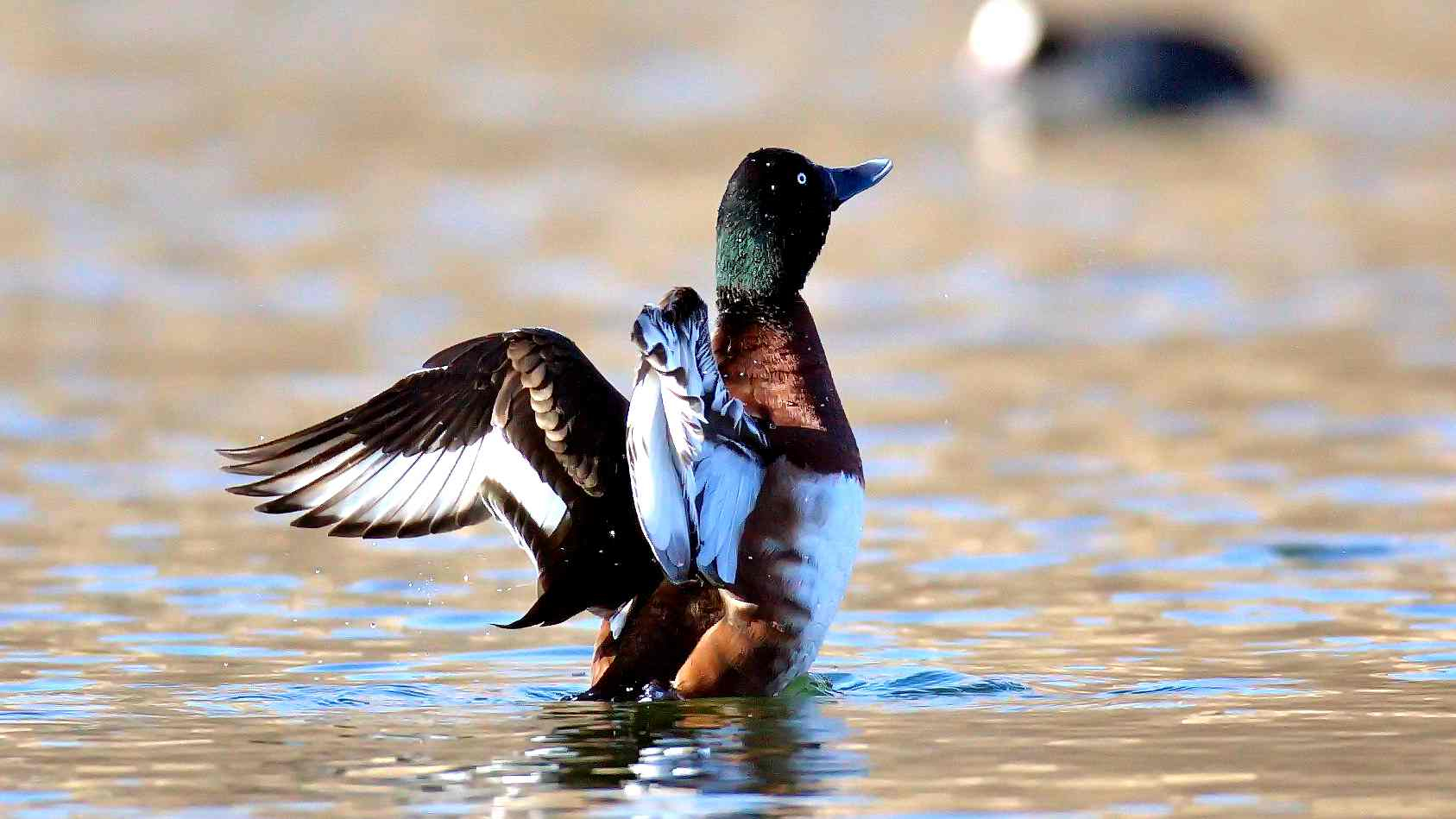
Twenty Baer's pochards, one of the world's most endangered bird species, were recently found diving in the Sand Lake of Yugan county in east China's Jiangxi Province.
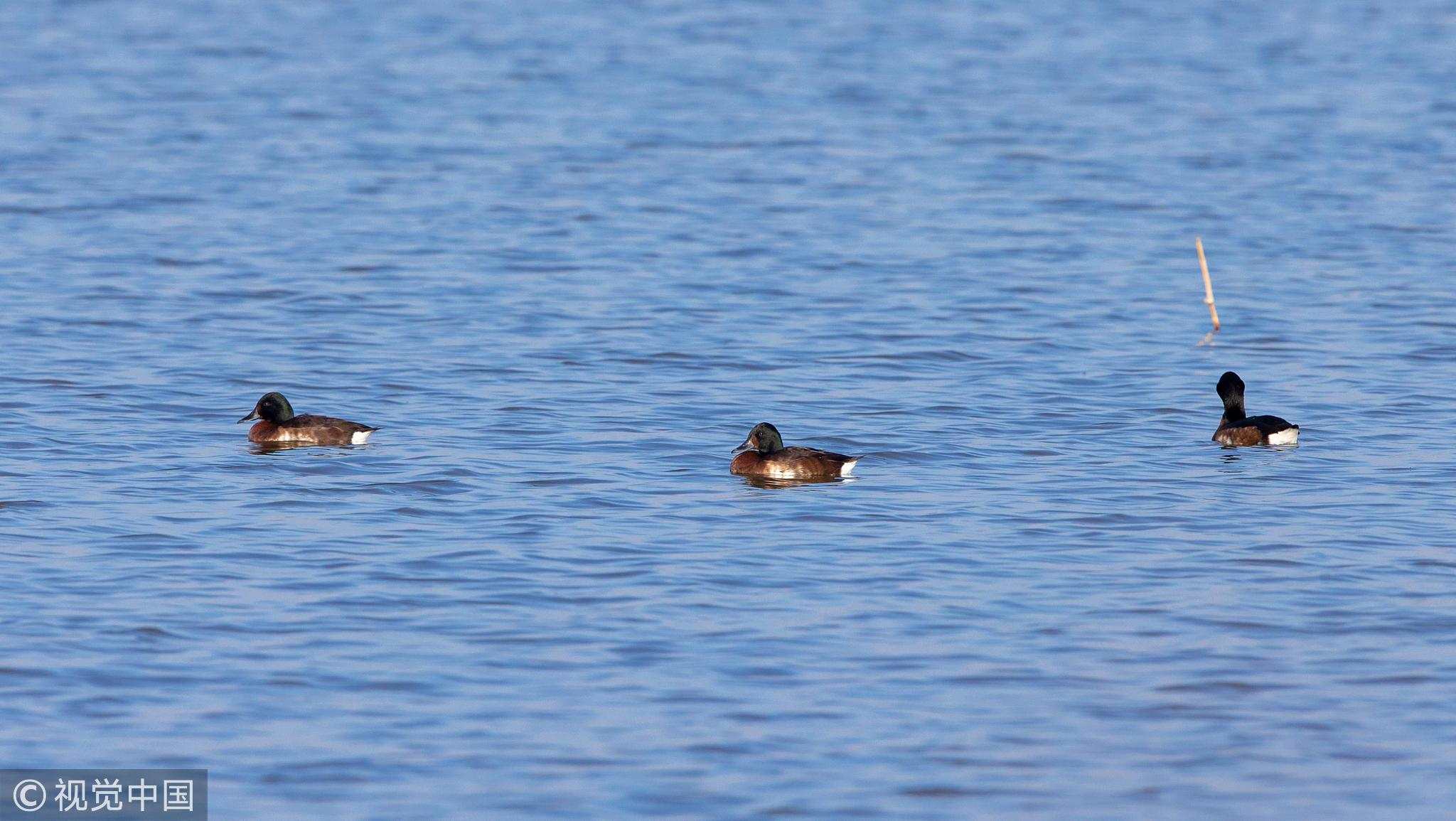
Baer's pochards were spotted diving in the Sand Lake of Yugan county, east China's Jiangxi Province. /VCG Photo
Baer's pochards were spotted diving in the Sand Lake of Yugan county, east China's Jiangxi Province. /VCG Photo
The global population of the Baer's pochard is less than 1,000. It's classified as "critically endangered" by the International Union for Conservation of Nature (IUCN). Therefore, it's quite rare to witness a Baer's pochard in the wild.
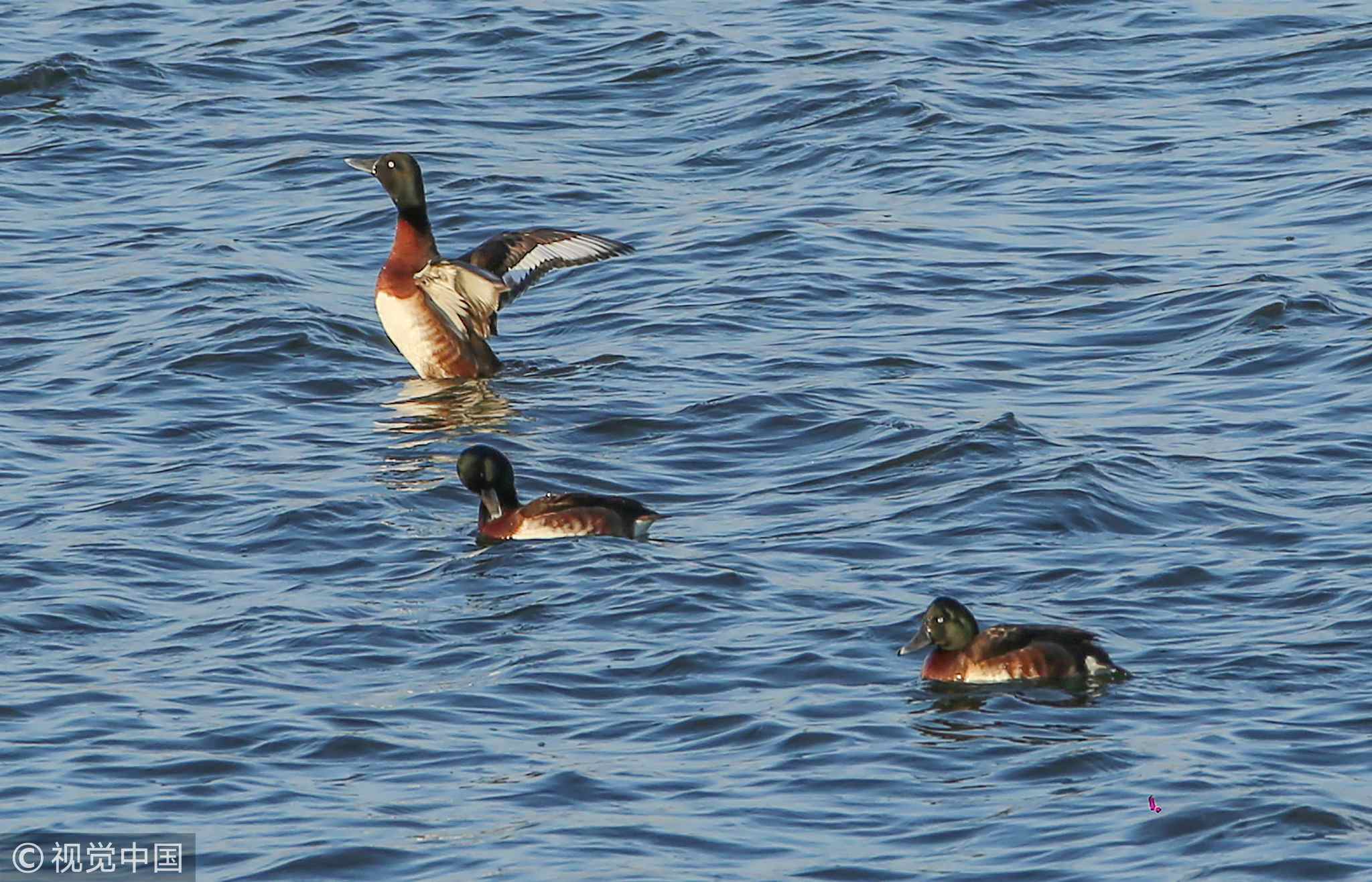
Baer's pochards /VCG Photo
Baer's pochards /VCG Photo
The duck is named after Estonian naturalist Karl Ernst von Baer who is the founding father of embryology. It breeds in southeast Russia and northeast China, migrating in cooler seasons to southern China, Japan, India, and Vietnam.
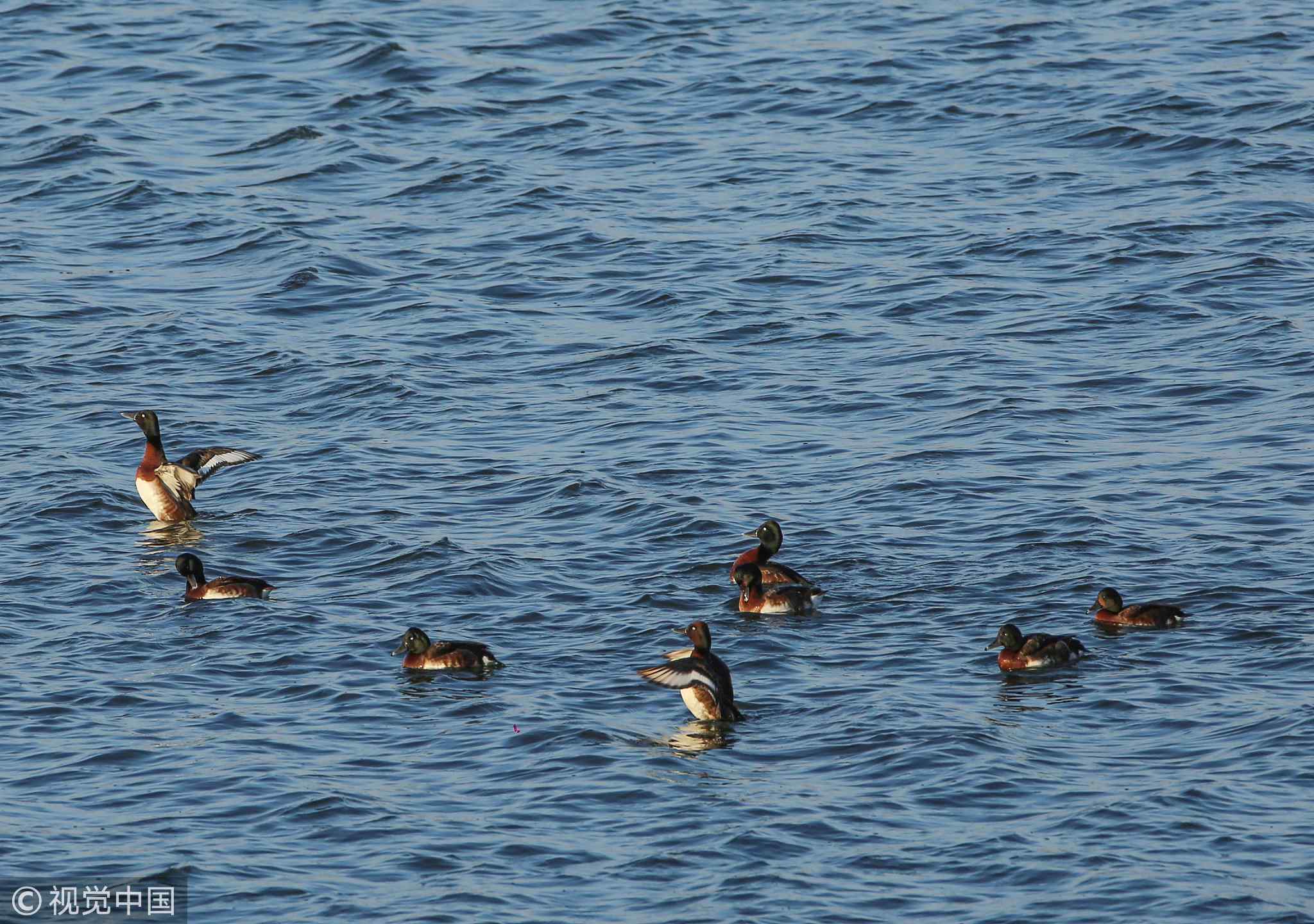
36 Baer's pochards were spotted in Jiangsu, east China. /VCG Photo
36 Baer's pochards were spotted in Jiangsu, east China. /VCG Photo
In January, 36 Baer's pochards were also spotted in Xuzhou, Jiangsu Province.
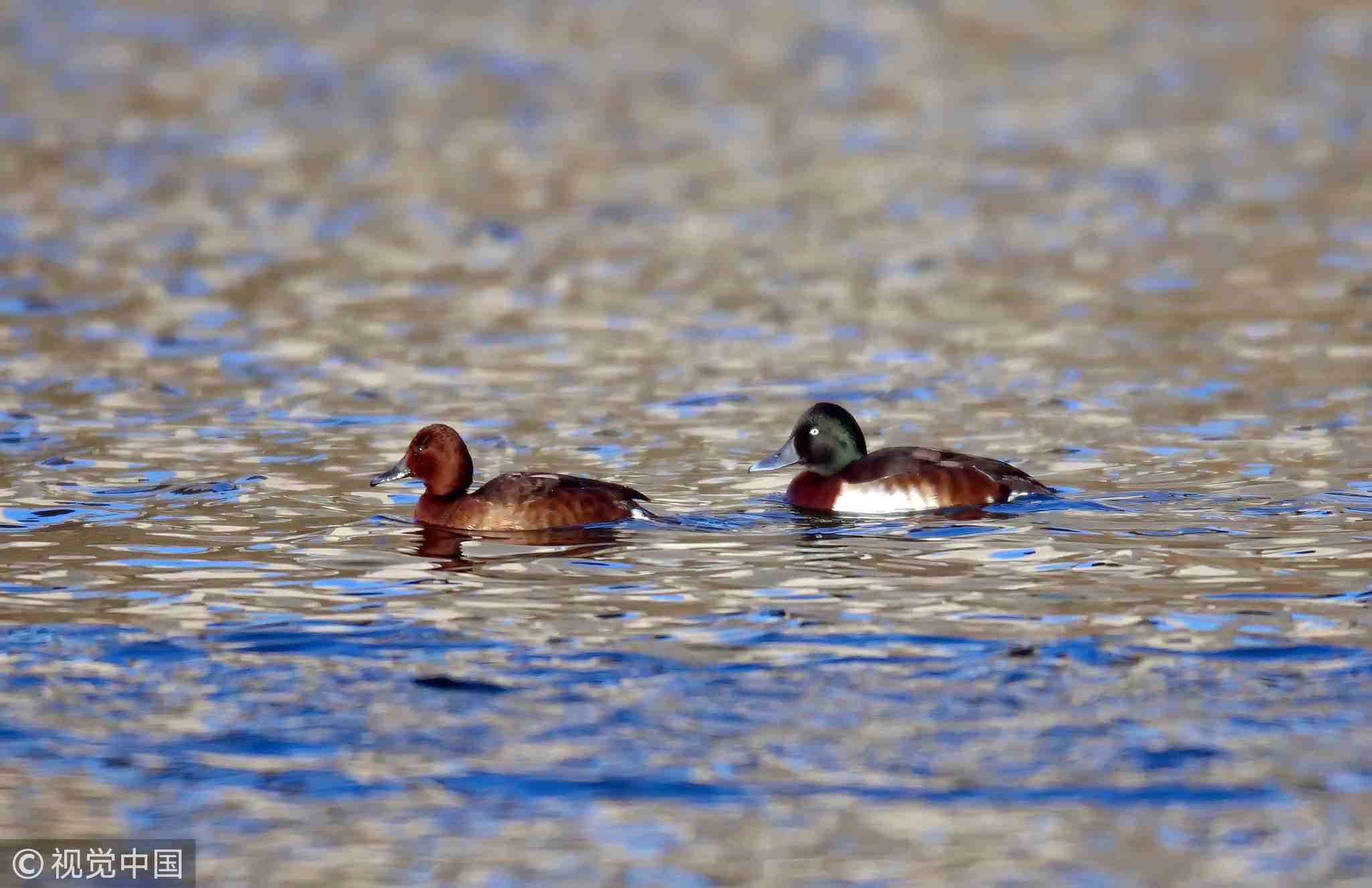
Baer's pochards /VCG Photo
Baer's pochards /VCG Photo
The duck was thought to have been common until the 1980s, then its population declined drastically. Wetland destruction and hunting in their breeding areas are thought to be the causes.
Now the pochards are just one step away from extinction and they are even rarer than the giant panda.
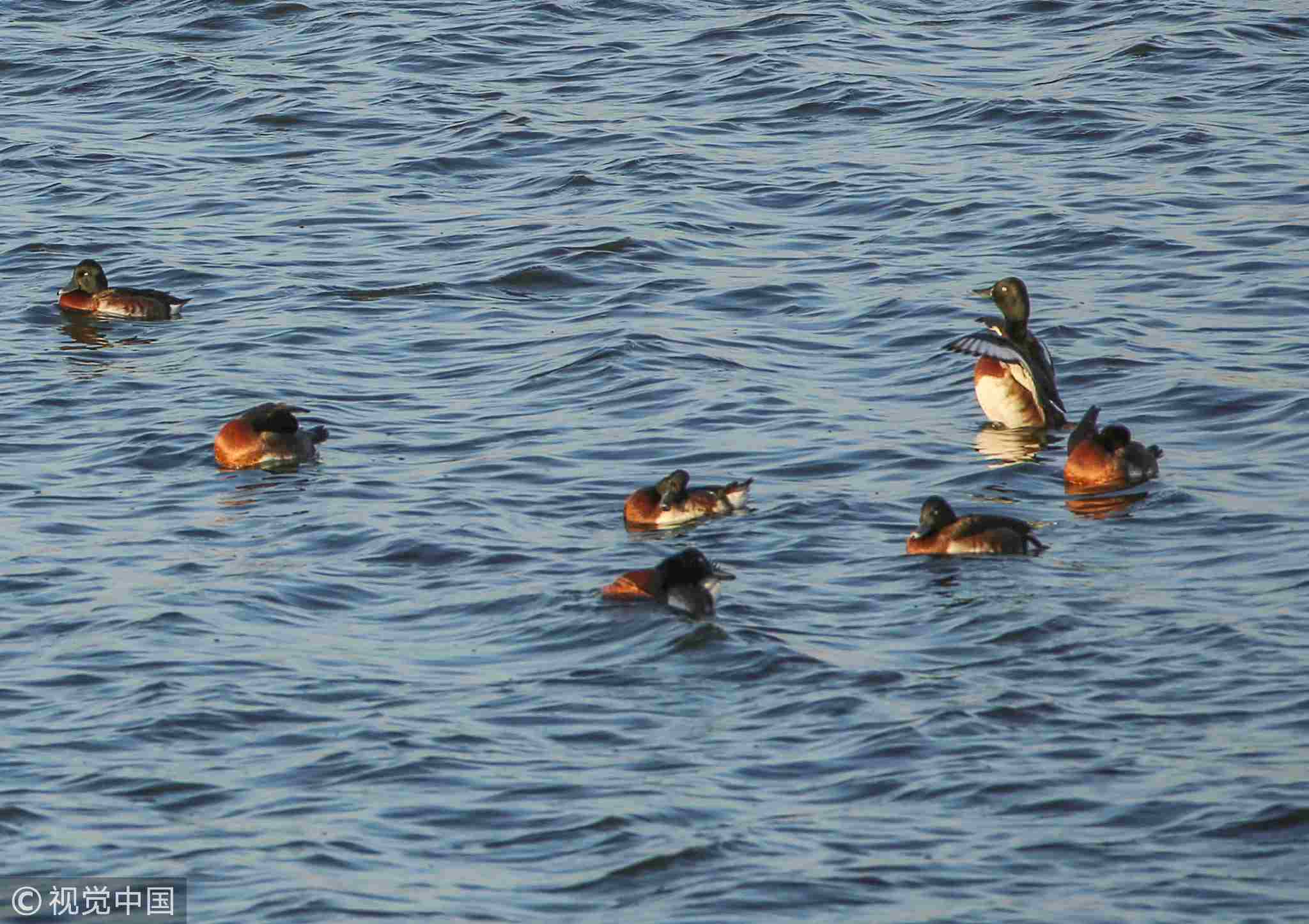
Baer's pochards. /VCG Photo
Baer's pochards. /VCG Photo
Many conservationists are trying to protect the duck. Hengshui Lake National Nature Reserve, located around 150 miles southwest of Beijing, is considered as the "Home of Baer's Pochard." It is the most significant site for the remaining ducks.

Hengshui Lake National Nature Reserve, north China. /VCG Photo
Hengshui Lake National Nature Reserve, north China. /VCG Photo
In order to protect the duck, the key part of the lake is declared as a fully protected zone during the breeding season and illegal egg collection and fishing are prohibited. Public information campaigns are being proposed to raise awareness of the importance of duck protection.
Last year in the reserve, hundreds of the birds were spotted on migration and smaller numbers were attempting to breed.
Although the species remains on the brink of extinction, successful conservation efforts can still make positive changes to the population of this rare diving duck.

SITEMAP
Copyright © 2018 CGTN. Beijing ICP prepared NO.16065310-3
Copyright © 2018 CGTN. Beijing ICP prepared NO.16065310-3